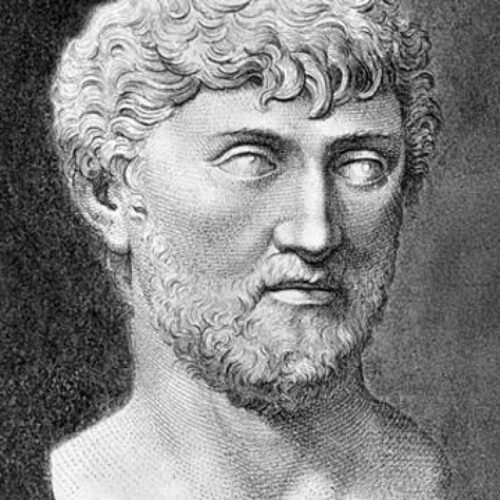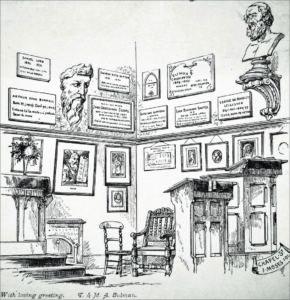

Titus Lucretius Carus was a Roman poet contemporary of Julius Caesar. Little is known of him apart from his name and his poem De Rerum Natura (On the Nature of Things) which nevertheless reveals much about his beliefs and his character.
The main purpose of the work was to free Gaius Memmius (to whom he dedicated the poem) and presumably all of humankind of superstition and the fear of death. His poem expounds the atomic theory of Democritus and the moral philosophy of Epicurus.
He argues against fear of gods/supernatural powers by demonstrating through observations and logical argument that the operations of the world can be accounted for entirely in terms of natural phenomena.
He argues against the fear of death by stating that death is the dissipation of a being’s material mind. Lucretius uses the analogy of a vessel, stating that the physical body is the vessel that holds both the mind and spirit of a human being. Neither the mind nor spirit can survive independent of the body. So, as a simple ceasing-to-be, death can be neither good nor bad for this being.
According to Lucretius, fear of death is a projection of terrors experienced in life, of pain that only a living (intact) mind can feel. Lucretius also puts forward the ‘symmetry argument’ against the fear of death. In it, he says that people who fear the prospect of eternal non-existence after death should think back to the eternity of non-existence before their birth, which they probably do not fear.

What primarily unites Humanists is not a set of propositions to be believed but moral values to be freely chosen… […]

Julia Huxley was a feminist and freethinker, who profoundly influenced a generation of girls who attended the school she founded […]

Millicent Mackenzie was a pioneering educationist and suffragist, who – alongside her husband, John Stuart Mackenzie – gave significant support […]

Positivism is a philosophical system based on the writings of French thinker Auguste Comte, which flourished from the 1830s onwards. […]